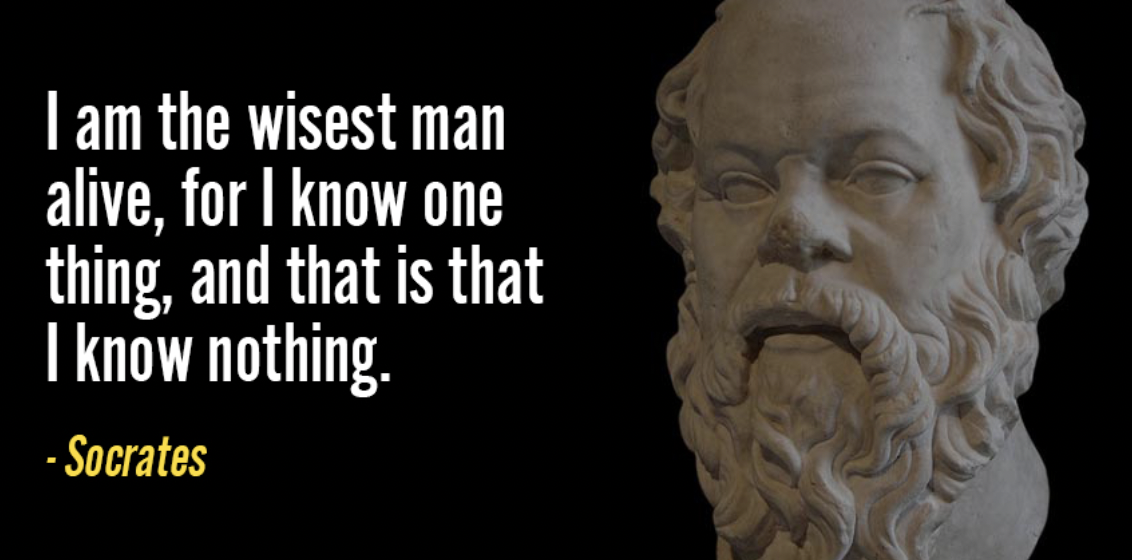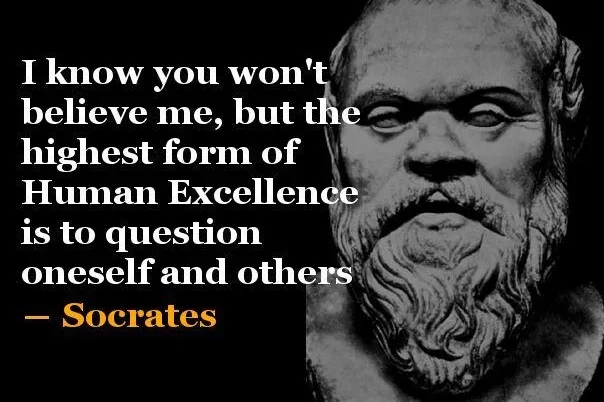The Socratic method is a method of hypothesis elimination, in that better hypotheses are found by steadily identifying and eliminating those that lead to contradictions.
The Socratic method searches for general commonly held truths that shape beliefs and scrutinizes them to determine their consistency with other beliefs. The basic form is a series of questions formulated as tests of logic and fact intended to help a person or group discover their beliefs about some topic, explore definitions, and characterize general characteristics shared by various particular instances.
Four Steps to the Socratic Method
four key steps in the Socratic method:
1) eliciting relevant preconceptions,
2) clarifying preconceptions,
3) testing one’s own hypotheses or encountered propositions, and
4) deciding whether to accept the hypotheses or propositions.

Here are the six types of questions Socrates posed:
- Clarifying concepts. …
- Probing assumptions. …
- Probing rationale, reasons and evidence. …
- Questioning viewpoints and perspectives. …
- Probing implications and consequences. …
- Questioning the question.

How do you teach the socratic method?
- Plan significant questions that provide structure and direction to the lesson.
- Phrase the questions clearly and specifically.
- Wait Time: Maintain silence and wait at least 5 to 10 seconds for students to respond.
- Keep the discussion focused.
- Follow up on students’ responses and invite elaboration
Examples of the Socratic Method
Under the Socratic method, there are various ways that professors can question their students. Typically, however, the questioning usually lies at opposite ends of a spectrum. For example, a professor might pick a student at random and question them (rapid-fire) for the entire duration of the class
| Question type | Examples |
|---|---|
| Clarification | What do you mean when you say X? Could you explain that point further? Can you provide an example? |
| Challenging assumptions | Is there a different point of view? What assumptions are we making here? Are you saying that… ? |
| Evidence and reasoning | Can you provide an example that supports what you are saying? Can we validate that evidence? Do we have all the information we need? |
| Alternative viewpoints | Are there alternative viewpoints? How could someone else respond, and why? |
| Implications and consequences | How would this affect someone? What are the long-term implications of this? |
| Challenging the question | What do you think was important about that question? What would have been a better question to ask? |
